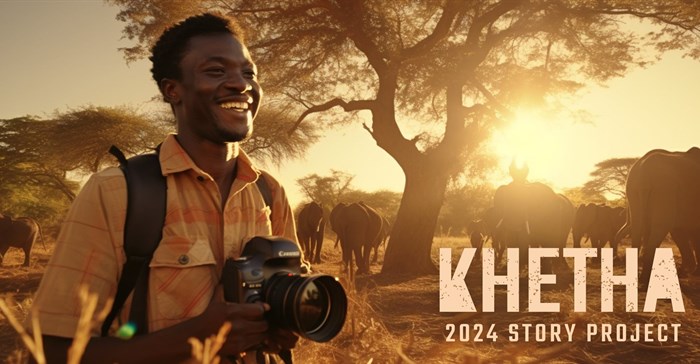Wildlife crime often remains underreported, and when it does grab headlines, the coverage varies widely from sensational to lackluster. In South Africa, the public discourse primarily centers around poached rhinos, pangolins, and snared wildlife.

Source: Supplied.
The issue of poaching is embedded in a complex system marked by pressing socio-economic challenges, including inequality, historical grievances, unemployment, and corruption. The question arises: why is it socially acceptable for a hunter to purchase a license to kill an animal for sport, while it is considered taboo to snare a buck for sustenance?
Complex questions
Addressing these complex questions is no easy task. To enhance journalistic coverage and shed light on the broader social context, the Khetha 2024 Story Project will officially launch in Hoedspruit on 21 November.
The project will include a series of webinars bringing together voices from affected communities, leading conservationists, researchers, and award-winning journalists. Early next year, the project will allocate story grants totaling over R275,000 to journalists collaborating with conservationists in the Greater Kruger area. Their aim is to document efforts to combat wildlife crime.
Fred Kockott, the director of Roving Reporters, the organisation distributing the grants, highlighted that the grants would enable reporting teams to produce high-quality stories for local, national, and international media outlets. Assisted by science communication specialists from Jive Media Africa and the World Wide Fund for Nature (WWF) South Africa, the project emphasises collaboration and comprehensive reporting.
Prizes will be awarded to trainee writers, including early career scientists, presenting compelling stories related to the Khetha-themed webinars. The first webinar, hosted by Oppenheimer Generations Research and Conservation on 30 November, is titled A Thin Green Line: Balancing Customary and Traditional Law in Wildlife Trade. Its goal is to spotlight how conflicting claims to resources and differing views on conservation hinder efforts to curb the illegal wildlife trade.
Panelists
The panelists are Julian Rademeyer, an investigative reporter and authority on organised crime, Vusi Tshabalala, a Kruger to Canyons environmentalist and community worker, and Lara Rall, the communication manager of WWF South Africa’s Khetha Programme.
Supported by the United States Agency for International Development (USAID), the Khetha Programme was established to help address the impact of the illegal wildlife trade on rhinos and elephants, and the people who live with them, in the South African and Mozambican landscape of the Great Limpopo Transfrontier Conservation Area.
For further information about the Khetha 2024 Story Project contact Esther Mostert at
esther@jivemedia.co.za .








































